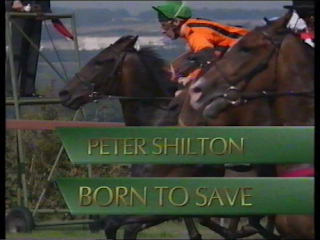England's premier goalkeeper
Peter Shilton could have appeared in the Great Players list for at least half a dozen clubs, such is the longevity of his career and the precocious nature of his early career at Leicester City. Even as a teenager Peter was insisting that he shouldn't be playing second fiddle to the great Gordon Banks. His positional sense and penalty-box awareness served Filbert Street well after Banks had gone to Stoke City. Later, Peter followed Gordon to the Potteries, but by 1977 still hadn't been rewarded with any major honours. Brian Clough persuaded Shilton that this would all change at the City Ground, and that prediction proved to be amazingly accurate. Clough believed Shilton was worth at least 18 points a season and indeed it was Peter who would ensure at least a draw in many matches during that set of incredible unbeaten runs.
His reliability and confidence inspired Larry Lloyd and Kenny Burns to provide the bedrock of success in those fantastic Forest years. Certainly, his attacking colleagues still give credit for his input. Shilton eventually moved on to Southampton, Derby and many other clubs. He broke endless records, made over 1,000 league appearances, won 125 international caps and played on well into his 40s. Since retiring, spells of management at Plymouth and coaching at Torquay and other clubs haven't satisfied Peter's ambitious needs, but with a will as strong as his, who's to say that we've heard the last of this giant.
His reliability and confidence inspired Larry Lloyd and Kenny Burns to provide the bedrock of success in those fantastic Forest years. Certainly, his attacking colleagues still give credit for his input. Shilton eventually moved on to Southampton, Derby and many other clubs. He broke endless records, made over 1,000 league appearances, won 125 international caps and played on well into his 40s. Since retiring, spells of management at Plymouth and coaching at Torquay and other clubs haven't satisfied Peter's ambitious needs, but with a will as strong as his, who's to say that we've heard the last of this giant.
Folder :
Born and brought up in post-war Leicester, Peter Shilton’s sole ambition was always to be the best goalkeeper in the world, and he achieved this, perhaps for many consecutive years. From his early years with his native Leicester City, to the twilight of his career in the 1990 World Cup, Shilton was perceived as a driven and serious soul. It was this drive, dedication and ambition, coupled with a fair amount of natural talent that saw Peter Shilton surpass all appearance records, both national and international.
It was during the late 1970′s into the early 80′s that Peter Shilton began to emerge as one of the worlds best goalkeepers in many people’s eyes. At six feet even Peter Shilton was not a man of immense physical presence, however, his footwork, suppleness and agility made him a near impenetrable barrier at times.
It was at this point in his career that Shilton was locked in a power struggle of sorts; for the right to play in the national side. His adversary was Liverpool’s Ray Clemence, a man who Shilton in normal circumstances regarded as a friend. From 1978 through until 1982 Peter Shilton and Ray Clemence were played on a rotational basis by manager Ron Greenwood. It was not until the eve of the opening round of the 1982 World that Peter Shilton was finally told he was to be the undisputed number one.
For the next eight years Peter Shilton dominated the England goalkeeping position and would not relinquish his grasp until after the 1990 World Cup, which happened to be his fortieth year.
Peter Shilton’s club career was spent predominantly with Nottingham Forest, Southampton and Derby, but he had very fruitful spells at Stoke City and of course Leicester. It was however with Nottingham Forest, and in particular with Brian Clough, where he achieved his greatest prizes. ‘Old Big Head’ as Clough was often referred to, purchased Shilton as the bedrock of his team, after telling Shilton of his dreams for the club. In the seasons that followed, Shilton inspired Forest to the most succesful period of the club’s history; they won the League twice and the European Cup twice.










